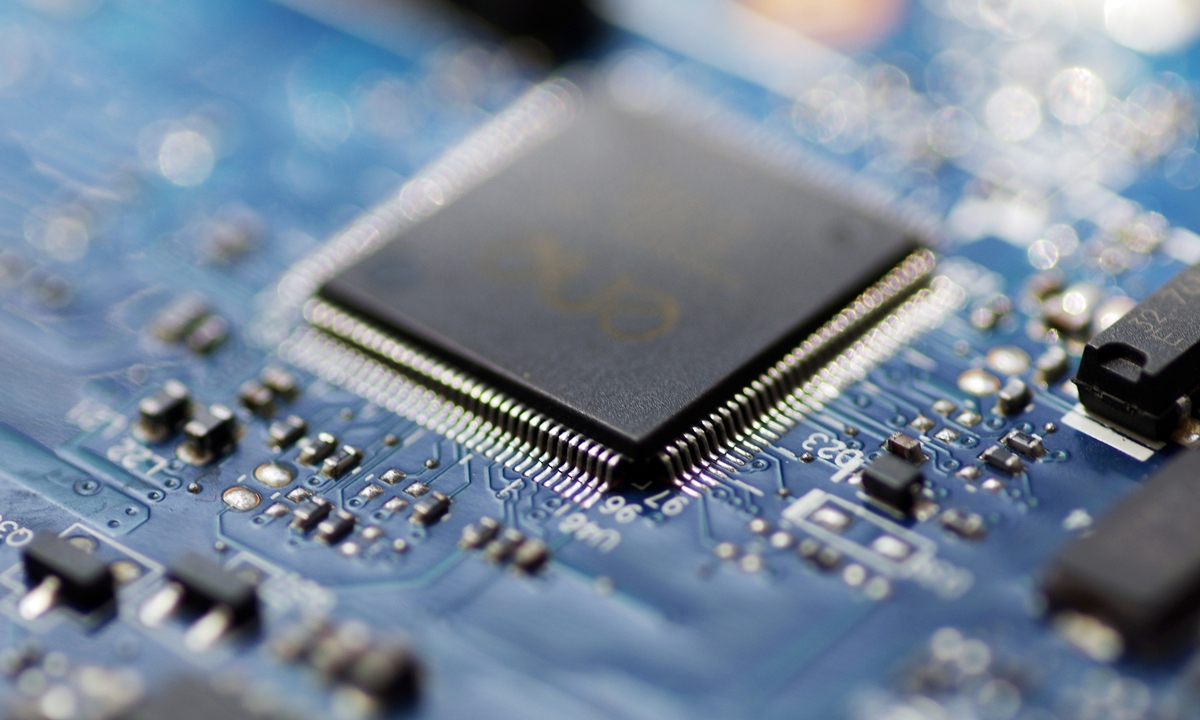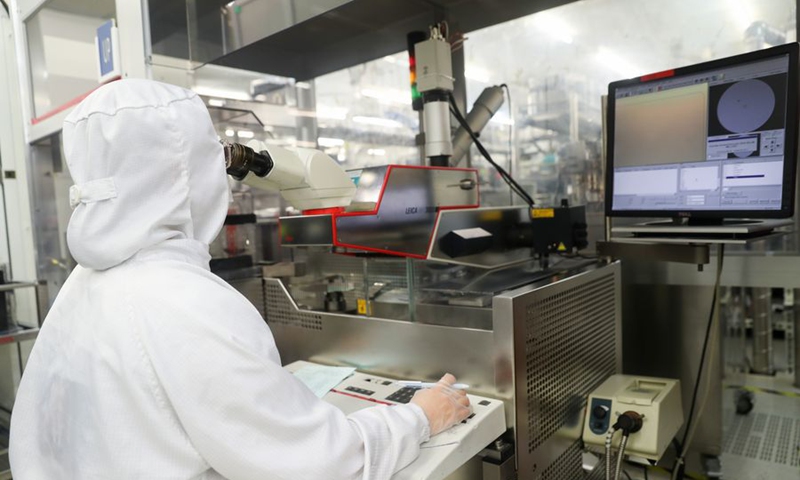Chinese chipmaker SMIC refutes US accusations after reported blacklist
Source: Global Times Published: 2020/9/5 17:20:35

Photo:VCG
China's leading chipmaker Semiconductor Manufacturing International Corporation (SMIC) said on Saturday that it is "in complete shock and perplexed" by media reports of the US government considering blacklisting the company, stressing that it has not violated any laws and pushing back against accusations of ties with the Chinese military.
Citing a US Defense Department official, Reuters reported on Saturday that the Trump administration was considering adding SMIC to a trade blacklist. The blacklist, once implemented, would force US suppliers to seek a license before selling products to SMIC.
While the reported move might be aimed at forcing the Chinese firm to cut chip supplies to Huawei and broadly targeting China's chip industry, it will also hurt US and global companies and will not give the US any extra advantage in the crucial sector, a Chinese industry analyst said.
SMIC issued a statement on Saturday saying that any assumptions of the company's ties with the Chinese military are untrue and false.
"Nevertheless, SMIC is open to sincere and transparent communication with US government agencies in hope of resolving potential misunderstandings," the statement noted.
The company also stressed that it had maintained long-term strategic partnerships with multiple US-based semiconductor equipment suppliers and has been fully compliant with all rules and laws.

A staff member works at a workshop of a semiconductor company in Shanghai, east China, Feb. 10, 2020. (Xinhua/Ding Ting)
The US government has already put an increasing number of Chinese tech companies on its "entity list" including Huawei and ZTE, drawing ire from Chinese officials who have repeatedly criticized the US moves as politically-motivated crackdowns on Chinese businesses.
The reported move against SMIC could be a warning signal to the Chinese company that it must abide by US regulations and stop supplying chips to Huawei, according to telecommunications analyst Ma Jihua.
"I think it's impossible for SMIC to cut supplies to Huawei, and US action against SMIC will come sooner or later," Ma told the Global Times on Saturday, adding that the impact of such sanctions would not have too much impact on SMIC because raw materials for making chips can still be imported from Japan or South Korea.
He also noted that US crackdown on Chinese firms should force Chinese companies to upgrade and develop their technologies, while bringing revenue losses to US upstream semiconductor companies.
"I don't think the crackdown will bring any benefits to US companies, which will also slow down chip innovation amid the political chaos," Ma said.
Global Times
RELATED ARTICLES:
Posted in: INDUSTRIES,COMPANIES